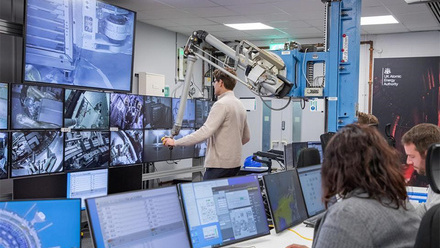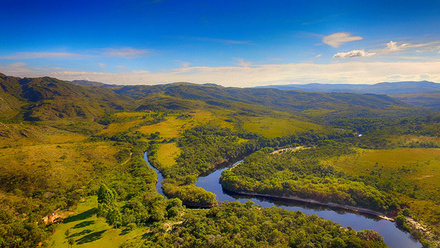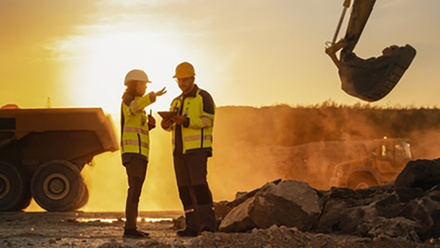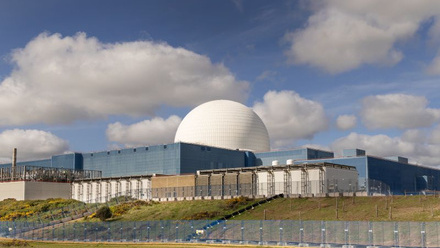Taking the opportunity
In the race to be energy self-sufficient, a hydrocarbon find can feel a big prize. But that’s only the start of the process, as Lebanon is experiencing. Rhiannon Garth Jones explains.
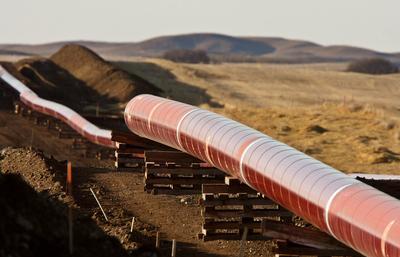
Since a consortium of Israeli and American firms discovered more than eight trillion cubic metres of natural gas in several offshore fields in the Eastern Mediterranean in 2009, excitement has hit Lebanon that they might have their own major gas find. Domestic and international politics have slowed progress in exploration, but confidence in the country’s potential hydrocarbon resources remains buoyant and the process is finally beginning — although many obstacles still remain.
In March 2020, the chairman of the Lebanese Petroleum Administration (LPA) originally announced that results from the first exploratory well were expected in May. A Total-led consortium, including Eni and Novatek, was awarded two exploration and production licenses for Block 4 and Block 9 at the end of the first offshore licensing round two years ago. The second offshore licensing round has since been extended to June 1, due to COVID-19. However, the LPA states drilling plans are uninterrupted at the time of press.
The drillship, Tungsten Explorer, was initially expected in Lebanon in December 2019, but its drilling programme in Egypt took longer than expected. Mona Sukkarieh, Political Risk Consultant and Co-founder of Middle East Strategic Perspectives based in Beirut explains that, ‘such small delays are common in the industry and shouldn’t raise concerns as they are technical in nature. That said, the delays might affect the timing of the rest of the Tungsten Explorer’s drilling programme in the Eastern Mediterranean. After drilling in Lebanon’s Block 4, the drillship will conduct a number of drills offshore Cyprus before moving back to Lebanon for a second drilling.’
Before COVID-19, the second licensing round had been pushed back from the end of January to late April to allow more time for companies to prepare their offers. ‘Probably the direct reason for the delay is political,’ Sukkarieh says. ‘At the time, there were doubts a government would be formed soon enough and, given previous experiences (it took former Prime Minister Saad Hariri nine months to form his cabinet in 2019 and 10 months for Tammam Salam in 2014), it was better to be cautious given that bids are only valid for a few months.’
She cautions, however, that another reason for the delay may be that, ‘there were some uncertainties over companies’ willingness to bid, despite attracting considerable expressions of interest in the months following the launching of the tender’. Although Lebanon’s hydrocarbon potential is considered to be exciting, there are various concerns, among them the ability to monetise the finding, given the country’s political situation.
Political problems
The news has caused excitement among both politicians and the general population. Historically, the country lags behind their neighbours in exploiting their own resources, and so this response is inevitably contributing to a difficult situation whereby political unrest and public opinion makes progress tricky, leading to more unrest. President of the Lebanese Institute for Market Studies, Dr Patrick Mardini, based in Amsheet, notes that there are two main factors to be aware of.
‘Firstly, they think it can solve the electricity crisis in Lebanon. Electricity is a government-managed sector. The country imports oil, its main fuel source, from abroad. The government’s losses on the electricity sector are around US$2bln per annum so electricity is responsible for around 50% of Lebanon’s debt. We have 12 hours of blackouts because it’s so expensive. So, people are excited because they think Lebanon can switch from oil to gas, using the gas we find in the Mediterranean. And that it can solve both our electricity problem and our debt problem because that’s such a big factor in the annual debt of the government.’
Secondly, ‘the government of Lebanon is unable to pay its debt – we are talking about restructuring and about defaulting on sovereign debt, which is around 150-155% of the GDP. The country does not have any growth so we cannot pay the debt. People have lost their jobs, businesses are closing, and banks have seized people’s deposits so they are unable to withdraw their money because the banks have lent it to the government. People believe that the offshore oil and gas find can be the solution to all their problems - electricity, the country’s debt and their personal finances. At least, that’s how politicians are selling it to gain some patience from the people. It represents some hope for the future.’
On top of that, he adds, trust in politicians is low. Lebanon ranks highly in most government corruption indexes. ‘It’s a double-edged sword – on the one hand, politicians are trying to use it to calm the population and tell them better days are coming. On the other hand, the population is sceptical about the politicians’ abilities to deliver the returns for everyone, not just themselves.’ And, of course, the frustration that no progress has been made contributes to the current political unrest.
The success of Lebanon’s neighbours in exploiting their finds means hope remains high. However, even if everything goes smoothly from here, production remains quite some way off and geopolitical factors with those neighbours will play a part in what happens next.
Tackling transportation
Mardini explains that, ‘Transportation is the real challenge because of the geopolitical problems. Building a pipeline for Lebanon would be very costly. Israel, Egypt and Jordan already have their lines set, which connect to Italy. Turkey is trying to work with Libya in this area. The Russians are a bit concerned because they are a big supplier of gas to Europe so the Mediterranean find could provide competition for them. Of course, Russian gas is a lot cheaper but then there are political issues to be considered. The Russians have an oil storage facility here in north Lebanon and a pipeline facility, so they also have their eye on this market. Within all those tensions, transportation is a big challenge — do you send your gas to Turkey and then through the Russian pipeline to Europe, or do you take the Israeli-Jordanian-Egyptian pipeline to Italy?’
The focus on domestic demand means this issue is not being discussed currently but it will be a factor for those companies who bid – or decline to bid – for contracts. Moreover, it is not certain that the domestic market would be sufficiently profitable. Sukkarieh asks, ‘Is the local segment going to be enough to justify development in the case of a commercial discovery? Much is going to depend on the nature and timing of the discovery.’
Cyprus, for instance, has found its progress exploiting offshore hydrocarbons limited by this. Robert Morris, Senior Research Analyst for Europe at Wood Mackenzie, has previously outlined the situation. ‘There is limited space in local markets and existing export infrastructure [in Cyprus]. And the volume is insufficient for ExxonMobil and its partner Qatar Petroleum to feed a two-train LNG plant — which had been the partnership’s goal,’ says Morris. Lebanon might find itself with similar problems to its neighbour, making the transportation issue far more prominent.
Sukkarieh believes that, ‘electricity sector reforms must be a priority for the new government. The objective is to secure a cheaper and cleaner source of energy and to increase the share of natural gas in the energy mix. Lebanon has also now set an ambitious goal of having 30% of its total energy sourced from renewable energy by 2030.’
It’s clear that Lebanon has a lot riding on these offshore gas fields — and the work won’t stop once the commercial viability is confirmed.
Q&A Dr Patrick Mardini, President of the Lebanese Institute for Market Studies
What are the impediments to properly developing the find? And, how long might it take for Lebanon to fully exploit it?
People are excited because they feel we have a high potential for oil and gas in the area, specifically gas. We are talking probably about 25tcm, which is quite big for Lebanon (not so big worldwide but locally). We have neighbouring countries who have already found oil and gas, Cyprus, Israel and Egypt, and the 2D and 3D seismic studies showed we have very good potential.
However, Lebanon needs at least seven years to start reaping any income from the oil and gas industry. The licensing round, the exploration, the appraisal, the development, the production, each of those stages takes at least one year, often more. So, the production won’t start for 10 years probably. If you look at our neighbours, Cyprus, Israel, Egypt, they already have their industries running from their discoveries. We are really lagging behind.
On the exploration and drilling, we have a big problem setting our borders to the south with Israel and the north with Syria and the Americans have been trying to bring the situation to an agreement. So, there are geopolitical issues too because we are still in a state of truce with Israel, so they don’t want to talk directly, and we also have problems with Syria. This tension with our neighbours can delay the exploration and the drilling stage.
On the technical side of things, Total will handle Block 4. They will start the drilling, which is the pressing thing now – you can do all the studies you like but you don’t know how much you have and how efficient it is to produce until you drill. Of course, drilling in the sea is more expensive so cost is an important issue. Our neighbours found that it was efficient so it should be the same here, but we still need to drill to confirm.
Is there any likelihood of Lebanon moving towards renewables and only exporting their oil and gas?
If you have challenges with transportation, then probably your best option is domestic consumption. If we have the option to export the oil and gas, people might start to think about renewables but right now the focus is on the domestic and how it can alleviate the current problems.


